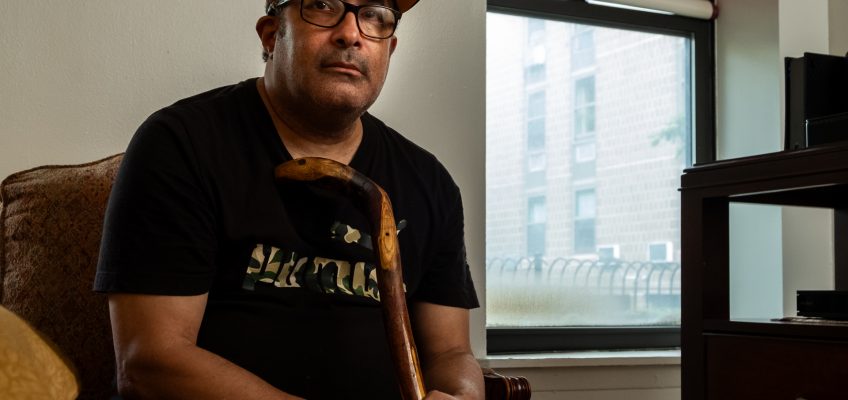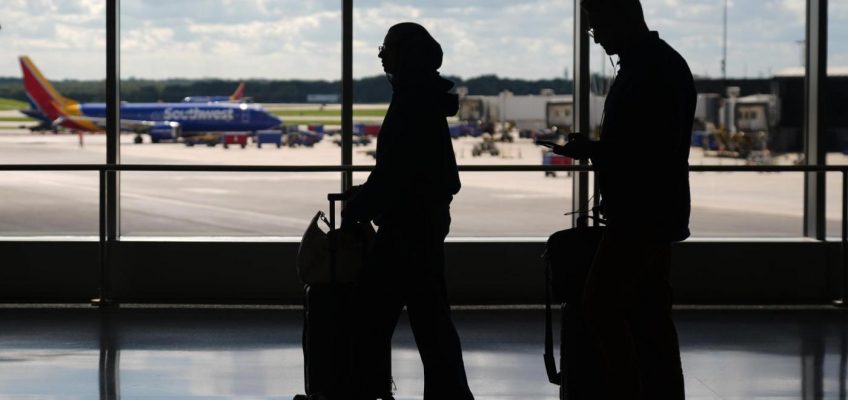San Mateo County social worker Aldo Quintero and his wife, Liza, make respectable salaries in their government jobs, but in a region with a median home price of $1.4 million and a county where the figure reaches $2.2 million, a home for the couple and their two kids in the community they serve was out of reach.
For years, Quintero commuted an hour-plus across the Bay from Hayward, and though they later found a small rental in the San Mateo County town of Belmont, their pay wasn’t enough for them to afford a home of their own.
“Even as I got raises and better-paying jobs, it’s like I couldn’t catch up to where prices were,” said Quintero, who earns $144,000 not including benefits.
Each year, the Quinteros entered a program sponsored by the county for its employees — a lottery awarding 20 loans of up to $100,000 toward the purchase of a home in San Mateo County. In 2023, they won. Along with the loan, they scraped together their savings plus money from their family to put in an offer of $780,000 for a two-bedroom, one-bath condo in Foster City, just a 10-minute drive from work and their children’s school.
Related Articles
Average long-term US mortgage rate eases to 6.3%, back to its lowest level in about a year
Forecast: Home equity rates, the Fed and what’s next for home equity borrowing
Should you pay off your mortgage early?
U.S. Bank Center heads to auction for $1 million starting bid
Average long-term US mortgage rate ticks up for second straight week, to 6.34%
“We got used to these hour-long commutes, and now that we don’t have to do that, it’s such a privilege,” Quintero said. “We have so much more time to spend on other things.”
Employee housing stipends have long been a feature of high-paying jobs in the corporate world, but the middle-income workers educating children, repairing roads and working in hospitals often must look far from where they work to find a home they can afford to rent, let alone buy.
To give their employees a fighting chance in the housing market, some local governments, universities and hospitals are offering down payment assistance as an employee benefit. These loans can be an opportunity for social workers, city planners and teachers to put down roots in the communities where they work — rather than having to choose between punishing commutes from the exurbs or leaving the Bay Area altogether, to afford a home.
“Down payment assistance allows middle-income families to be part of the wealth building of the community,” said Julie Mahowald, CFO of Housing Trust Silicon Valley, a nonprofit that provides down payment assistance to low-income households in Alameda and Contra Costa County. “People aren’t as transient, they’re not driving as far, and they’re not coming to work exhausted.”
Aldo Quintero with his wife Liza and children Isabella, 10 and Mateo, 13, at their home in San Mateo, Calif., on Monday, April 7, 2025. Quintero is an employee of San Mateo County who was able to use the county’s help to afford a down payment on a home. (Jane Tyska/Bay Area News Group)
For those without access to a loan from the “Bank of Mom and Dad,” stocks to cash out or lottery winnings, it can take years to save up for a down payment in the Bay Area. For a traditional 20% down payment on a median-priced home of $1.4 million, a family would need $280,000, plus more for closing costs. Even with that, payments on a fixed-rate 30-year mortgage at the current average of 6.34% would still cost $6,800 a month, plus property taxes. By increasing the down payment amount, a mortgage can become somewhat more manageable.
For employers, helping their workers find stable housing is also a matter of retention. In San Mateo County, commute time is among the top reasons workers cite for leaving.
“It’s exponentially harder to find employees to move to this area because of the high cost of living — or even to commute, because of traffic,” said Mike Callagy, San Mateo County Executive. “As a large employer in the county, we have to be creative in finding ways to incentivize people to move here.”
Most loans come with low interest rates that need not be paid back until the property is sold or the employee leaves. Some down-payment programs are catered to certain types of employees. Educators in San Francisco can apply to get a loan of up to $500,000. Kaiser Permanente offers up to $250,000 to newly-hired physicians. And union-affiliated employees in Sonoma County can apply for up to $100,000 toward a home in the county.
Many Bay Area universities have long offered a housing stipend to incoming faculty, which functions as a sign-on bonus, rather than a loan. At UC Berkeley, new professors typically receive around $88,900, but can go up to $150,000 in special circumstances. At Stanford, professors are eligible for up to $200,000 in housing assistance, paid out over 12 years. The benefit does not need to be repaid, but it is taxed.
Some economic research has questioned whether homebuyer assistance, by just infusing more money into a housing market with tight supply, actually counterproductively increases housing prices. But Ben Harris, vice president of economic studies at the Brookings Institution, said that too few people are likely taking advantage of down payment assistance to significantly increase prices locally, and their impact is also diluted when the supply of homes increases.
“It’s not an either-or situation,” Harris said. “You can expand the supply of homes while also subsidizing the purchase of them.”
Some local governments are doing just that. This year, teachers began moving into a 135-unit rental complex built by the San Francisco Unified School District and Mercy Housing in the Outer Sunset, as well as a 110-unit teacher housing project, The Acacia, in Palo Alto.
For the Quinteros, though, homeownership has offered more stability than renting. They moved with their two young kids three times in the past decade — moves that were especially disruptive for their youngest daughter, who has autism.
“It’s really nice to have a place where she feels secure,” Quintero said, “and to know we’re not going to have to move to another home or school.”




